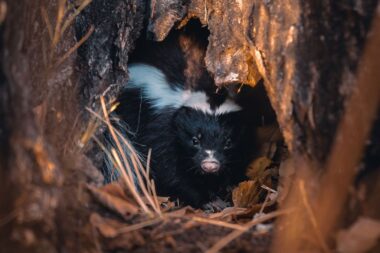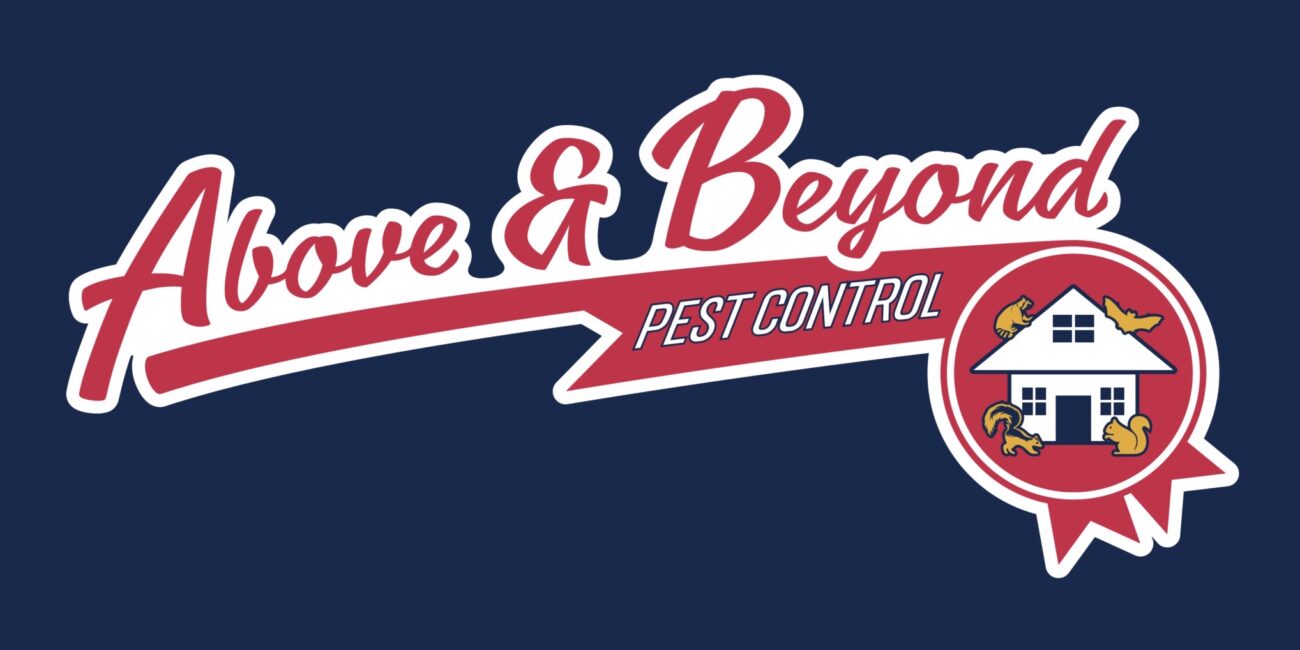burrow, pest, skunk, pest control, roof, odor, squirrel, raccoon, insect, rabies, basement, rodent, sense of smell, wildlife, porch, pet food, groundhog, lawn, nest, infestation, opossum, crawl space, chipmunk, wildlife control, wildlife removal services, wildlife removal, shed, bird control, disease, new york city, species, chimney, natural environment, feces, hydrogen peroxide, mammal, fear, fence, striped skunk, beaver, habitat, the bronx, spotted skunk, accessibility, wood, wire, queens, fur, electrical wiring, pest control company, primary, tail, ammonia, bird food, inspection, soil, berry, mothball, armadillo, maryland, tularemia, foraging, mesh, animal removal, canine distemper, leptospirosis, bait, urine, termite, fee, the smell, price, emergency, email address, wasp, kansas
How much cost to remove skunk?
The cost to remove a skunk typically varies based on the infestation's severity, property location, and chosen removal method. On average, you can expect to pay between $150 to $500 for professional skunk removal services.
Can animal control take out skunk from my backyard?
Animal control can effectively remove skunks from your backyard. They are trained professionals equipped with safe trapping methods to ensure the skunk is removed without harm and released in an appropriate location.
How much does it cost to remove skunks?
The cost to remove skunks varies based on factors like infestation severity and location, typically ranging from $200 to $500 for professional removal and prevention services.
How much does it cost to have a skunk removal?
The cost of skunk removal can vary widely, typically ranging from $200 to $600, depending on the infestation's severity, location, and the chosen removal methods.
How much does it cost to remove skunk odor?
The cost to remove skunk odor typically ranges from $100 to $500, depending on the extent of the odor, the methods required for effective removal, and any necessary cleanup services performed by professionals.
How much does it cost to remove a skunk?
The cost to remove a skunk typically ranges from $100 to $300, depending on the severity of the infestation and the methods used for removal. Factors like property location and necessary preventive measures can also influence the overall cost.
What factors influence skunk removal costs?
The factors that influence skunk removal costs include the severity of the infestation, the property's location, the methods used for removal, and any necessary preventive measures to keep skunks from returning.
Are there different methods for skunk removal?
Different methods for skunk removal include live trapping, exclusion techniques to seal entry points, and the use of repellents like predator urine or ammonia. Each method aims to effectively and humanely manage skunk populations.
How long does skunk removal take?
The duration of skunk removal varies depending on the severity of the infestation and the methods used. Typically, the process can take anywhere from a few hours to several days to ensure complete removal and effective preventive measures.
What services are included in skunk removal?
Skunk removal services include identification of the problem, live trapping of skunks, safe removal and relocation, exclusion measures to prevent re-entry, and recommendations for maintaining a skunk-free environment.
Can I do skunk removal myself?
Removing skunks yourself may not be advisable. They can be dangerous and carry diseases. It's best to hire professionals for safe and effective skunk removal and control methods.
How effective is skunk odor removal?
The effectiveness of skunk odor removal is generally high when using proper cleaning techniques and products. Professional services can eliminate the odor thoroughly, ensuring lasting results and preventing recurring issues.
What type of permits are needed for skunk removal?
The type of permits needed for skunk removal may vary by region. Typically, individuals or companies must obtain a wildlife removal permit or follow local regulations to ensure humane treatment and compliance with wildlife protection laws.
Is skunk removal safe for pets?
Skunk removal safety for pets is a key concern. Professional skunk removal is typically safe for pets, as trained experts employ humane methods that minimize risks, ensuring both the skunk and your pets remain unharmed during the process.
What are the risks of DIY skunk removal?
The risks of DIY skunk removal include potential injury from aggressive behavior, exposure to diseases like rabies, and the legal implications of trapping wildlife without a permit. Additionally, improper removal methods may lead to skunks returning or causing further damage.
How do professionals remove skunks humanely?
Professionals remove skunks humanely by utilizing live trapping methods, which safely capture the animal without causing harm. After capture, the skunks are relocated to suitable habitats away from residential areas, ensuring their well-being.
What to do after skunk removal?
What to do after skunk removal is crucial for maintaining a safe environment. After removal, ensure any entry points are sealed, clean affected areas to eliminate odors, and implement preventive measures to deter future skunks from returning.
Do costs vary by location for skunk removal?
Costs for skunk removal do vary by location. Factors such as local demand, availability of service providers, and geographic region can influence pricing, making it essential to obtain quotes specific to your area.
How can I prevent skunks from returning?
To prevent skunks from returning, secure trash cans, remove pet food outdoors, and eliminate fallen fruits and vegetables. Additionally, sealing gaps in structures and using repellents like predator urine can further discourage their presence.
What is the best time for skunk removal?
The best time for skunk removal is typically during late winter or early spring when skunks are emerging from hibernation and actively searching for food. This timeframe allows for more effective trapping and control before they establish their territory.
Are there guarantees with skunk removal services?
Guarantees with skunk removal services can vary by provider. Many professional pest control companies offer warranties or satisfaction guarantees, ensuring that if skunks return within a specified period, they will re-treat the area at no additional cost.
How can I recognize a skunk infestation?
Recognizing a skunk infestation involves observing signs such as a strong, unpleasant odor, physical damage to your lawn or garden, and direct sightings of skunks on your property, particularly at dusk or dawn.
What odors can mask skunk smell?
Certain odors can effectively mask skunk smell, including strong fragrances like vinegar, citrus, and commercial air fresheners. Essential oils, such as lavender and eucalyptus, can also help mitigate the unpleasant scent.
What should I do if I see a skunk?
If you see a skunk, it is important to remain calm and keep your distance. Avoid approaching or attempting to touch the skunk, as it may feel threatened and spray. Instead, try to leave the area quietly and allow the skunk to move on.
How do I know if skunk removal worked?
Determining the success of skunk removal involves looking for signs of skunk activity, such as odors or physical damage. If these signs are absent for a few weeks, it typically indicates that the removal was effective.
What are common methods for skunk control?
Common methods for skunk control include live trapping, exclusion techniques to seal entry points, and the use of repellents such as predator urine or hot pepper spray to discourage their presence.
How to safely handle a skunk problem?
Safely handling a skunk problem involves professional removal using humane trapping methods, securing potential food sources, and implementing exclusion measures to prevent their return. Always prioritize safety and consider calling wildlife control experts for assistance.
What equipment is used in skunk removal?
The equipment used in skunk removal includes live traps, protective gloves, and handling equipment, as well as repellents and exclusion materials like mesh screens to seal entry points. These tools ensure safe and effective skunk capture and prevention.
What is the average cost of skunk control?
The average cost of skunk control varies based on factors such as infestation severity and location, typically ranging from $200 to $500 for comprehensive services, including trapping, removal, and preventive measures.
How do local regulations affect skunk removal?
Local regulations can significantly impact skunk removal procedures. Many areas have specific laws governing trapping, relocating, and humane treatment of wildlife, which must be adhered to in order to ensure compliance and avoid penalties.
Skunk Removal and Control
Skunk removal and control is essential for maintaining the safety and comfort of homes, especially in areas where skunks are prevalent. Skunks are nocturnal creatures, making them difficult to spot during the day, but their presence can become a nuisance due to their notorious odor and potential to damage property. Understanding the methods and costs associated with skunk removal is crucial for homeowners facing such challenges.
Additionally, effective skunk control not only addresses the immediate problem but also involves implementing preventive measures to reduce the chances of future infestations. This can include educating homeowners on the habits of skunks and the importance of securing potential food sources and sheltering spots. By prioritizing skunk removal and control, property owners can effectively safeguard their homes and promote a healthier living environment.
Understanding Skunk Behavior
To effectively manage skunk-related issues, it is important to first understand their behavior and habitat preferences. Skunks are known for their distinctive black and white coloration and primarily prefer wooded areas, suburban gardens, and agricultural lands, where they can find ample food sources such as insects, small rodents, and fruits. By observing these patterns, homeowners can take proactive measures to discourage skunks from frequenting their properties.
Skunks are also prone to rummage through garbage and pet food left outdoors, which can lead to significant property damage and unpleasant odors. Recognizing signs of skunk activity, such as burrows or overturned garbage cans, can provide valuable insights into their presence. This understanding can significantly aid in creating effective strategies for skunk control, ensuring that any problems are addressed promptly and efficiently.
Health Risks Associated with Skunks
Skunks pose various health risks that can have serious implications for humans and pets. They are known carriers of diseases such as rabies, distemper, and leptospirosis, which can be transmitted through bites or exposure to bodily fluids. As such, it is crucial for homeowners to remain vigilant and take appropriate action if they suspect skunk activity in or around their properties.
In addition to the direct health risks associated with skunks, their presence can also lead to secondary problems, such as attracting other pests. For instance, skunks can inadvertently bring in rodents by disturbing nests or eating their food, which creates further complications for homeowners. Understanding the health risks associated with skunks underscores the importance of professional intervention for removal and control measures, ensuring safety for both family members and pets.

